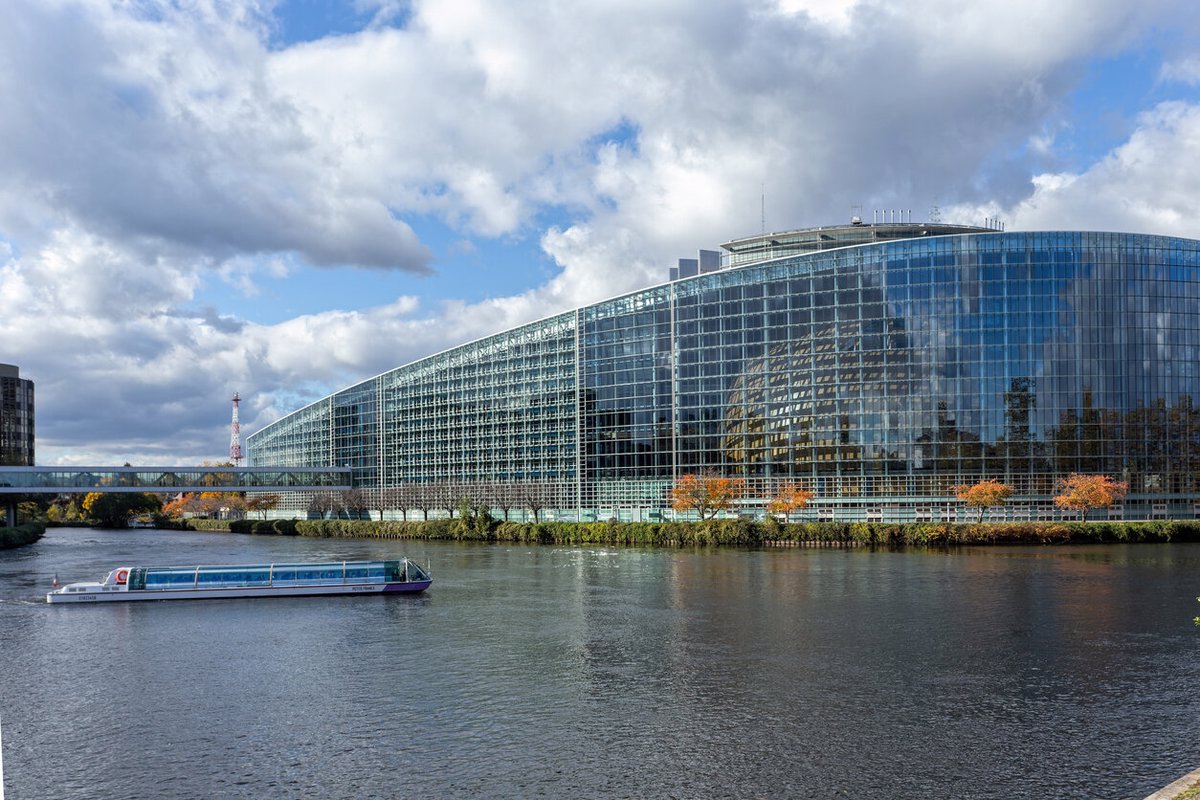EU must prioritise green investment in ports – ESPO
European ports “must be able to prioritise green investments that make most sense in terms of emission reduction," the European Sea Ports Organisation (ESPO) writes.
 PHOTO: The building of the European Parliament (the Louise Weiss Building) in Strasbourg, France. Getty Images
PHOTO: The building of the European Parliament (the Louise Weiss Building) in Strasbourg, France. Getty Images
A study conducted by the European Sea Ports Organisation (ESPO) finds that European ports will require investment in excess of €80 billion ($85.48 billion) over the next 10 years. At least 24% of this funding – around €19.2 billion ($20.52 billion) – will be needed to develop alternative energy infrastructure for shipping and ports, ESPO estimates.
Members of the European Parliament (MEPs) should encourage and facilitate these investments, according to ESPO.
The EU will hold elections to elect members of the European Parliament between 6-9 June this year. ESPO has released a memorandum outlining its key recommendations for the next five years to help upcoming MEPs lay the foundation for net-zero shipping by 2050.
Investments in alternative fuel infrastructure will only be effective if they are used for their intended purposes. To ensure this, newly elected MEPs should focus on compliance and incentives, the report emphasised.
Compliance measures could be mandated by promoting green investments within regulations such as the Alternative Fuel Infrastructure Regulation. Incentives could be provided through tax exemptions for shore power, ESPO explained.
“Europe must foster a stable and attractive investment climate and must make sure investors continue to be willing to invest in European ports,” the report said.
It also called for access to sufficient public funding to help shipping with its green fuel transition. This funding could come through channels such as Connecting European Facility, the Innovation Fund, the Just Transition and Modernisation Fund, ESPO suggested.
In addition, ESPO also recommended that new MEPs push for a global GHG pricing mechanism to accelerate shipping’s green fuel switch.
“A well-defined global maritime GHG emission pricing mechanism must incentivise the shipping sector at global level to act and prepare for an emission-free future and put a halt to the limited and even negative impacts of a regional measure,” the report noted.
By Konica Bhatt
Please get in touch with comments or additional info to news@engine.online





